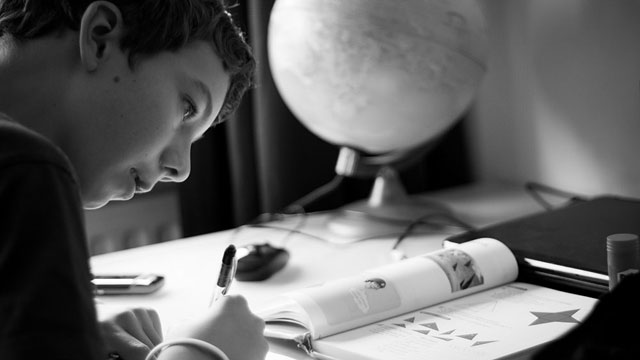“Kids are getting into Stanford who are coming in already as robo students,” Pope said. “What they had to do to get in was be the overachiever, but in their courses they can’t think outside the box.” Students arrive as good test-takers, but they can’t solve complex problems, think critically, communicate, problem solve or be creative. There has been very little transfer of learning to other areas, and no emphasis on cultivating a love of learning, Pope said.
[RELATED: How Do We Prepare Our Children For What's Next?]
Many of these issues can be remedied with deeper engagement, which leads to overall student well-being. “What we found is that when students are fully engaged they achieve more and they cheat less,” Pope said. They also exhibit less stress, anxiety and sad or angry behavior. “As an educator I want to try to stimulate the full engagement,” she said.
To reach that ideal, Pope has come up with the ABCs of engagement; affective, behavioral and cognitive engagement. Affective engagement is showing interest and enjoyment in the work, behavorial engagement is putting in the effort, completing assignments and showing up. But cognitive engagement is the part that’s often missing from school, when a student finds value and meaning in the work. “Without the affective and the cognitive the behavioral is really just spinning the wheels,” Pope said.
RESTRUCTURING SCHOOL FOR SUCCESS
Pope works with more than 100 schools across the country to try and make changes to structures and practices that could help mitigate some of the competition and stress that students often feel. The key elements to examine are students use of time, project and problem based learning, alternative and authentic assessment, whether students feel they belong and that people care about them, and then education.
The school schedule and how it affects student time is extremely important. Pope often recommends that schools move away from a school day that includes multiple transitions, a typical model for high schools. “It takes 13 minutes to transition to a new subject,” Pope said. Class is half over before students really settle in. But if the day is structured with far fewer transitions learning can go deeper and be interdisciplinary.
[RELATED: Why Kids Need School to Change]
If schools restructured their schedules and departments worked together, educators could do more project or problem-based learning. “We’re talking about the kind of projects that students see are relevant, meaningful, rigorous and where students have a voice and choice over what they work on,” Pope said.
Schools also need to reevaluate how and when they give exams. “We tend to take snapshots of students instead of making a whole portfolio,” Pope said. “You want to get student learning over time.” For her, cumulative tests are not effective because retention of the material is very low. Instead, she suggests teachers offer lower stakes and more frequent assessments of various kinds. That way all learners can demonstrate their knowledge and they’ll have to do so in ways that don’t only highlight memorization skills.
“These structures absolutely affect the health and well-being of students as well as engagement and achievement,” Pope said. The relationship that teachers cultivate with students is also very important. Even little things like rescheduling a test if students have big assignments due for other classes on the same day, shows them a teacher cares.
POPE’S STRESS RELIEVERS
There are a few things Pope would like to see more educators try in order to reduce the stress on students.
Test optional college applications: There are already more than 1,000 colleges and universities that are test optional – students don’t have to take the SAT or ACT to qualify. Pope hopes that trend continues, with more emphasis put on a portfolio of work, recommendations and essays.
No grades: Commenting on a piece of work forces students to internalize changes rather than focusing on exclusively on the grade. “Move away from the grade conversation,” Pope said. The standard argument has been that grades allow colleges to quickly compare students. But Pope said even state schools like the University of California system will soon be able to evaluate applications that don’t have grades and it will go a long way to convince applicants that schools are looking at the whole person, not just a number.
Reconsider assessment. Pope recommends high schools take a hard look at their assessments to determine if they promote cheating. “Have an assessment that allows them to revise and collaborate and cheating will go down,” Pope said. And if teachers remove the expectation that students turn in perfect work then students won’t feel they have to either cheat or be cheated.
A simple thing educators can do to understand what their students are going through is to shadow them. Some administrators tried this approach. “They realized how exhausting it is to go from class to class, keep it all straight and then go home and do homework,” Pope said. It promoted the whole school to reevaluate not only the school schedule, but the amount of homework and whether that work tied back to the core goals of each class or not.


